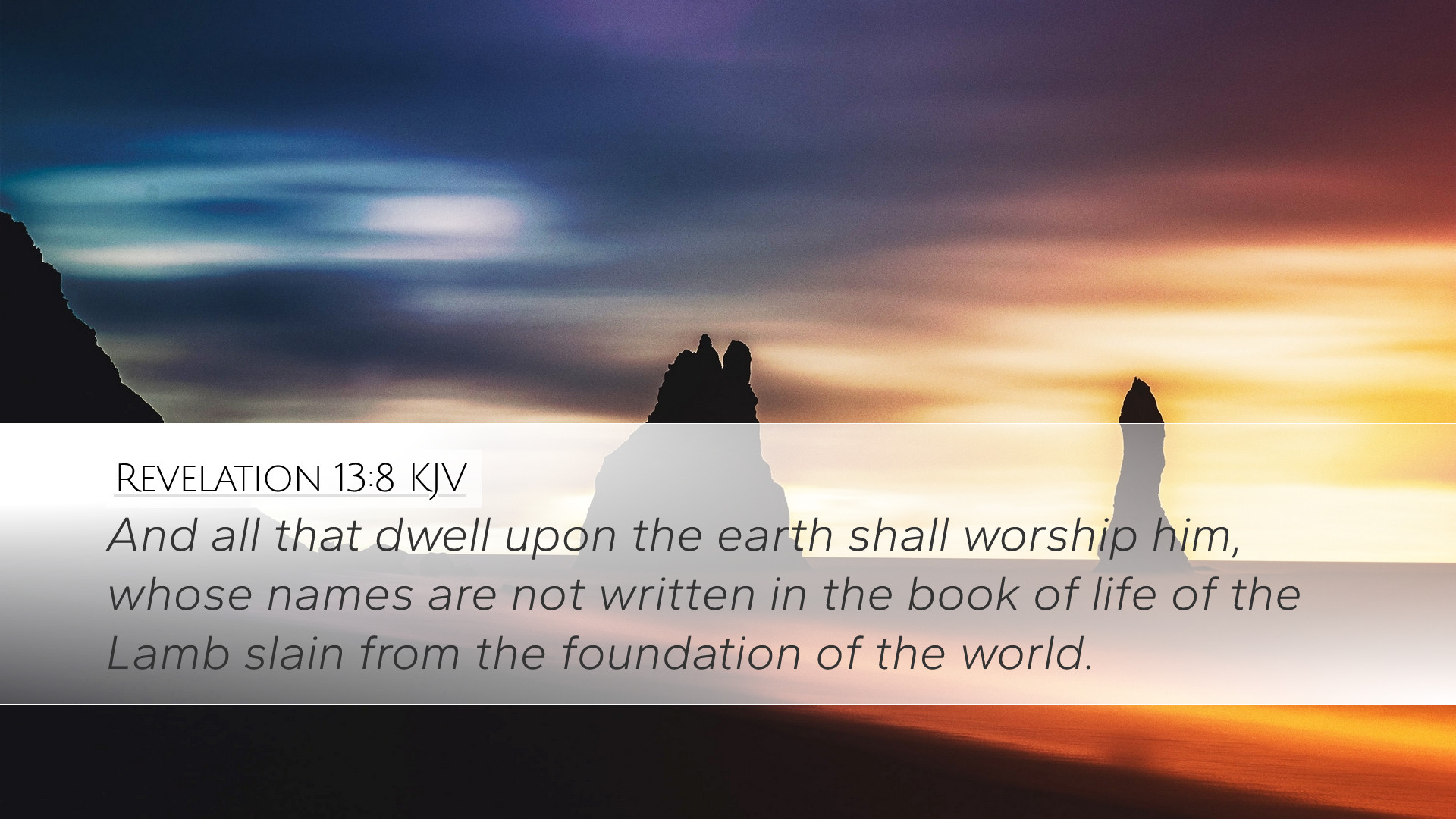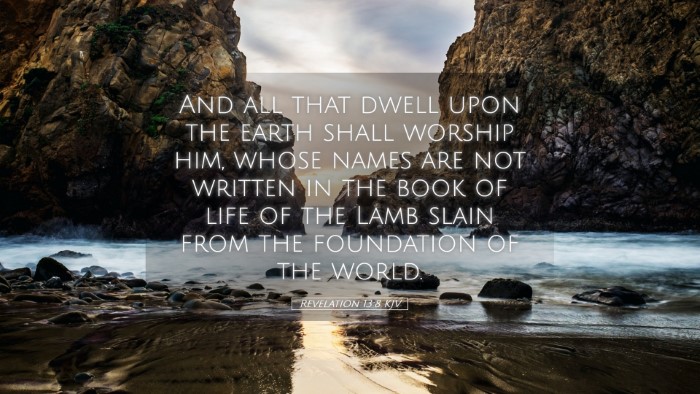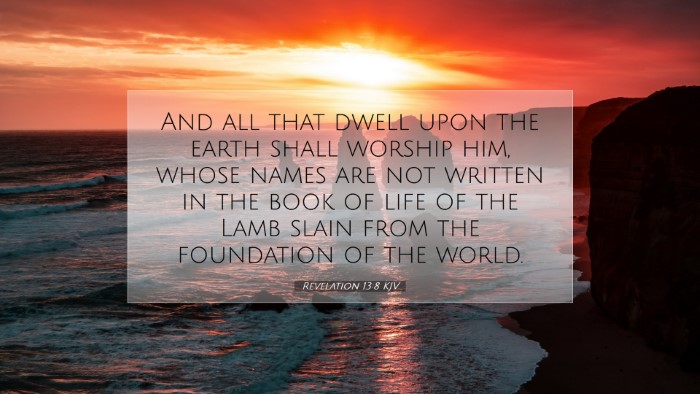Commentary on Revelation 13:8
Revelation 13:8 states: "And all that dwell upon the earth shall worship him, whose names are not written in the book of life of the Lamb slain from the foundation of the world."
Introduction
This verse is pivotal in understanding the overarching themes of worship, predestination, and the nature of Christ's sacrifice. It brings into focus the contrasting fates of humanity based on divine election and the peril that follows those who worship the beast. For pastors, theologians, and scholars alike, this verse encapsulates essential truths about the human condition and God's sovereignty.
The Context of Revelation
The Book of Revelation, attributed to the Apostle John, is apocalyptic literature that conveys profound truths through symbolic and prophetic imagery. Understanding the cultural and historical context of Revelation enhances our comprehension of its messages. The early Christian community faced persecution, which is addressed throughout the text, especially in chapters discussing the beast and false prophets.
Exegesis
-
Universal Worship of the Beast: The phrase "all that dwell upon the earth" indicates a totality of worldly allegiance to the beast, suggesting that the majority of humanity will be seduced by falsehood. Matthew Henry emphasizes the spiritual blindness that leads mankind to worship the beast, reflecting humankind's propensity to gravitate towards power and authority.
-
Names Written in the Book of Life: The significance of the "book of life" is profound. Adam Clarke notes that this book indicates divine foreknowledge and election, suggesting that only those chosen by God will stand against the influence of the beast. The implication of names not being written connotes a separation between the saved and the unsaved, illuminating concepts of grace and divine sovereignty.
-
The Lamb Slain: The reference to the "Lamb slain from the foundation of the world" is a powerful testament to Christ's role in redemption history. Albert Barnes elucidates this point, emphasizing that Christ's sacrifice was foreordained and integral to God’s plan for humanity. This highlights not only Christ's redemptive work but also the assurance of salvation for the elect.
Theological Implications
The implications drawn from Revelation 13:8 extend into various theological discussions. The concepts of worship, election, and the eternal security of believers stand at the forefront.
-
Worship as a Moral Choice: Worship in this verse is portrayed as an act of moral agency, where individuals choose whom to worship based on revelation of truth. The act of rejecting the beast signifies faithfulness to God, while submitting to worldly powers indicates a failure to recognize divine truth.
-
Predestination vs. Free Will: The tension between predestination (as highlighted by the book of life) and human free will surfaces here. Commentators like Matthew Henry reflect on this tension, arguing that God's sovereignty does not negate human responsibility. Ultimately, the choices made by individuals will have eternal ramifications.
-
The Assurance of Salvation: The phrase relating to Jesus as "the Lamb slain" offers a profound comfort to believers. Clarke highlights that understanding Christ's eternal sacrifice helps believers trust in their salvation even amidst trials. This assurance is pivotal for pastoral care and preaching.
Application for Contemporary Believers
Understanding Revelation 13:8 equips contemporary believers with vital insights for resisting cultural pressures that lead to spiritual compromise. There are several areas where application can be made:
-
Discernment in Worship: Believers today must evaluate who or what they worship. The pressure to conform to secular ideologies can lead to compromised faith. This calls for a rigorous theological grounding to discern truth from falsehood.
-
Courage in Trials: Just as the early church faced persecution, today's believers may encounter significant challenges for their faith. The assurance from the Lamb's sacrifice can fuel resilience and fortitude.
-
Evangelism and Discipleship: The clarion call to ensure one’s name is in the book of life drives mission and outreach initiatives. It is a reminder of the urgency in proclaiming the gospel to a world poised to worship false ideologies.
Conclusion
Revelation 13:8 serves as a stark reminder of the cosmic battle between good and evil, urging believers to remain faithful amidst overwhelming secular influences. Through understanding the depth of this verse, one finds encouragement in the unshakeable foundation of their faith—the Lamb who was slain for humanity. This exploration resonates with the spiritual heart of Christian doctrine and equips the church for the challenges ahead, guiding pastors, students, theologians, and scholars alike in their pursuit of truth.


